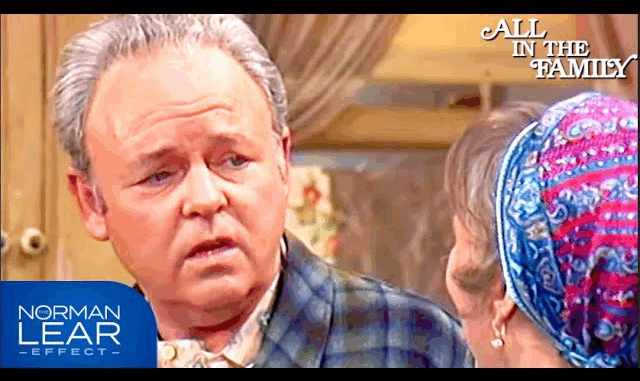
More than five decades after it first aired, All in the Family continues to resonate—not just as a piece of television history, but as a blueprint for how comedy can drive cultural conversation. In an age of sanitized streaming content and increasingly polarized discourse, Norman Lear’s groundbreaking sitcom remains a masterclass in using laughter to tackle uncomfortable truths.
At its core, All in the Family was a show about America. Not the aspirational America often portrayed on-screen, but the complicated, contradictory, sometimes ugly reality of its living rooms, workplaces, and kitchen tables. Through the lens of the Bunker household, audiences were forced to grapple with issues most networks preferred to ignore — from systemic racism and gender inequality to war, religion, and economic hardship.
The genius of Lear’s creation was that it didn’t lecture; it exposed. Archie Bunker, played to perfection by Carroll O’Connor, was both lovable and infuriating — a man whose outdated views were challenged not only by his family but by the very world evolving around him. Yet audiences kept coming back, not because they agreed with him, but because they recognized him. Everyone knew an Archie. Some were even brave enough to admit they had been one.
In today’s media landscape, where creators often fear backlash and networks hesitate to take risks, All in the Family stands as a bold counterpoint. It was a network primetime show that dared to be uncomfortable, that trusted its viewers to handle complexity, and that never insulted their intelligence. It proved that comedy can be fearless without being cruel — and that sometimes, the hardest truths are best delivered with a punchline.
Perhaps most importantly, All in the Family sparked a wave of progressive programming. Shows like The Jeffersons, Maude, and One Day at a Time expanded on its themes, creating a legacy of inclusive, socially conscious storytelling. Even modern sitcoms like Black-ish and The Carmichael Show owe a creative debt to Lear’s boldness.
As America continues to wrestle with the same issues Archie debated from his worn armchair, the show’s relevance is undiminished. It doesn’t just remind us where we’ve been—it challenges us to ask where we’re going. And in that, All in the Family is more than a television milestone. It’s a cultural touchstone.
